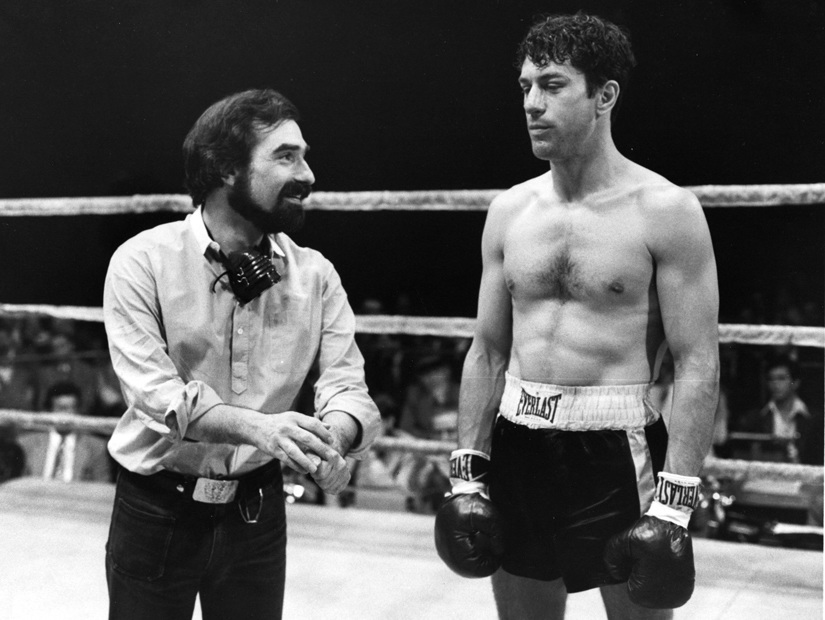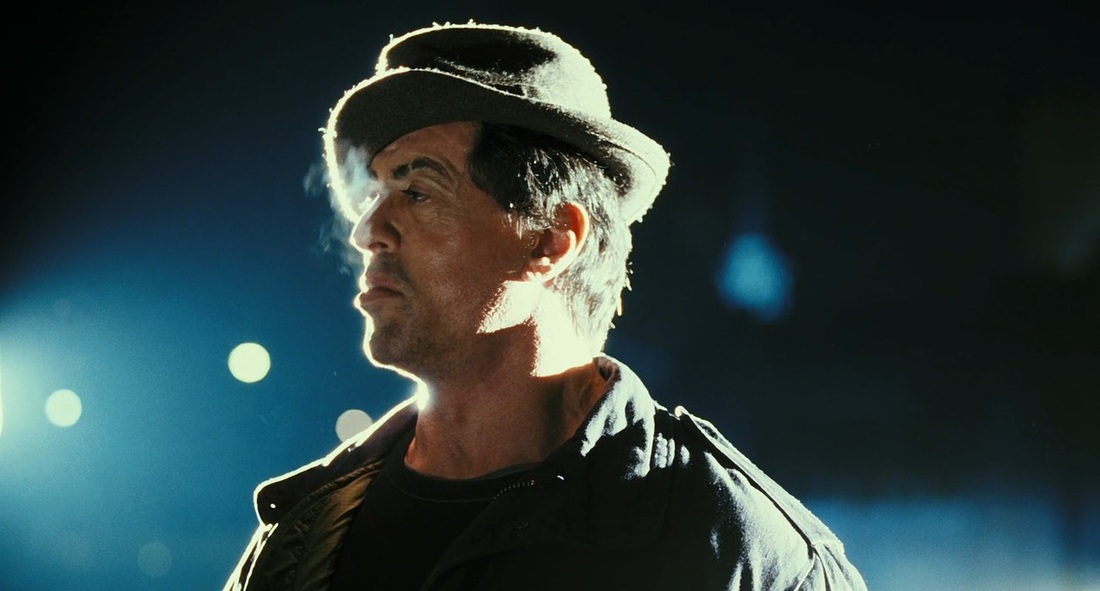Raging Bull
It’s difficult to quickly summarize everything that Scorsese did right with the movie, as I don’t think a single element of this film is any less than brilliant and worth talking about for pages on end. But, the most captivating elements that make this film so amazing (in my opinion) boil down to two key factors: cinematography and dialogue. Starting with the cinematography, Scorsese’s choice to make the film black and white adds a layer of depth to the film that color may have taken away. The lighting choices that Scorsese is allowed to make because of the film’s lack of color is spectacular, and this movie is one of the best example of storytelling without having to say a word, in certain scenes. The boxing matches are also some of the most realistic, tonally, that I’ve ever seen on film, with the camera angles adding layer upon layer of depth.
Though many of the scenes succeed in telling the story with little or no dialogue at all, the scenes that do have dialogue manage to be some of the most genuine feeling scenes in any movie. Jake’s interactions with both his brother and his wife are genuine and heartbreaking, as we in the audience know what Jake doesn’t seem to realize: that he is tearing his life apart, as he constantly harasses those he is close to. As the years go by, Jake’s relationships become more and more tense, thanks in part to the performances by De Niro, Pesci and Moriarty, but also to the stellar writing by Paul Schrader and Mardik Martin. One scene toward the beginning of the film, where Jake tries to get his brother to punch him in the face, is mesmerizing, though it seems to contain a lot of repetitive dialogue. Though the dialogue in this scene does seem to repeat itself, it is the realistic and genuine nature of the dialogue that makes the scene so perfect. The dialogue does truly represent how I think the film is in general: real. There is no aspect of this movie that feels hokey or fake, no moment that feels like it couldn’t have happened exactly as it does on screen. It’s one of the best movies I’ve ever seen, and proves more than anything that Scorsese is one of the greatest filmmakers still alive today.
Grade: A+
Rocky Balboa (2006)
Now, upon writing a quick synopsis for this movie, I have been struck with how ridiculous and stupid the premise for this movie sounds. A late-fifties Stallone getting in the ring with the real heavyweight champion? How could this movie possibly feel realistic if that glaring issue is the premise of the film? Well, like many other movies about boxing, this film is not really about the fight between Balboa and heavyweight champion Mason ‘The Line’ Dixon (Antonio Tarver), but about Rocky’s relationship with the people around him and his fears about whether or not his life still has meaning. All he has ever known is boxing and his family, and the loss of both of those things has caused his life to feel meaningless. Like how this movie has little to do with the actual boxing match, Rocky’s decision to box has little to do with wanting to punch people. He yearns to feel what he once felt, to go back to a better time, and the only way he knows how to do that is to get back in the ring.
The focus on Rocky as a character is really what keeps this movie grounded, and Stallone does an excellent job at portraying the older and wiser version of the original character. Balboa is no longer as bumbling and buffoonish as he once was, as age has certainly allowed him to become a bit more well-spoken and contemplative. He's certainly no genius, but he has a much better way with words than he did in the original film. This is most apparent in a scene where he argues with his son, who constantly shies away from his family name in order to make a life for himself. Rocky argues that his son, in his attempts to run from Rocky’s legacy, has lost who he was and what he wants, forgetting how to pick himself back up from a fall and learn to move on. Not only is the writing here a great parallel to what Rocky is going through in the film, but it also serves to prove that the character has matured and changed since the first film. Stallone, who wrote, directed and starred in the film, proves that he has a full understanding of the character. Thus, this movie proves to be a more perfect sequel to the original film than any of the others. This film proves that the character Rocky Balboa is one that can change and grow in a way that Stallone probably never envisioned when he wrote the original. Is it as good as the first one? No, sequels usually never are. But, it is one of the best continuations of a character you could possibly hope for, and a great chance to see Balboa in the ring one last time.
Grade: A-
Last week reviews Laika films in preparation for the release of Kubo and the Two Strings.


 RSS Feed
RSS Feed
